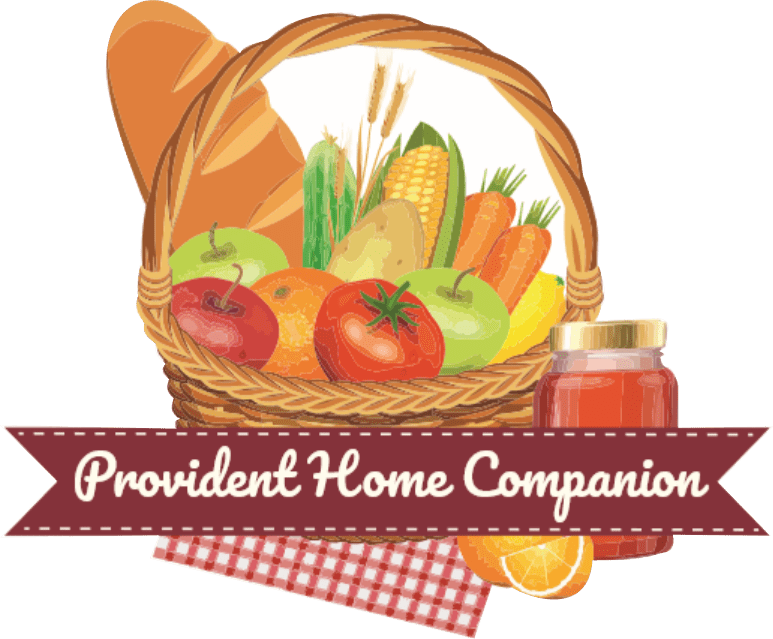

The news is alarming: Reports of food shortages around the world, world leaders confirming there will be even more shortages to come, food warehouse and production facilities burning down and more transportation bottlenecks. In the last month or two, I've received several emails and phone calls from people who've attended my preparedness webinars asking if it's too late for them to “get food storage.”
First question “Should I have a food storage?”
Many in the prepper community seem to have a doomsday mindset: they're stockpiling food and supplies for a time when everything falls apart. They're thinking only about food storage. Obviously food is a primary concern for everyone, but how long do you think a “food storage” will last? Six months? A year? And if there's a massive social breakdown, do you really think you can hold onto that food while your neighbors and community suffer?
That's why I prefer to have a food plan. A food plan is a multi-pronged approach to preparing for a wide-spread crisis, like prolonged food shortages. It starts with a super pantry: a three-month supply of canned, boxed and frozen foods that you typically eat every week. (I've written about it here.)

But that's just the first part. The next step is to have a way to continually produce food. That's why gardening is a key ingredient to a sound food plan. Living in North Dakota, our window to grow a garden is pretty small: about 100-115 days. That's one reason to also have perennial food growing in your yard: berry bushes and fruit trees, an asparagus and a Jerusalem artichoke (sunchoke) bed and perennial greens like sorrel and Good King Henry.
You can also extend your gardening window a month or two (I'll discuss how to extend your garden season in a forthcoming column.) But the best thing you can do during that short gardening window is to preserve as much of your garden as you can.
Third component: preserving food
Canning is the most common way people to preserve their garden's bounty, but there are other methods as well: drying, freezing, fermenting and storing in a root cellar. It's best to not just rely on one form of food preservation. You'd hate to lose everything if someone unplugs the freezer.
The fourth component of your food plan is have alternate food sources. Learn how to forage for food: dandelion and tender nettles are delicious and plentiful in North Dakota. You may want to include hunting and fishing as part of your food plan.
The key component: networking
But the most important part of a sound food plan is to network with friends and neighbors. For example, most people are not able to keep chickens, so find a friend who has chickens and arrange a swap: eggs for jelly. You likely can't raise a pig or a cow, either. Find a friend or two who'll split one with you.
Start asking your friends how concerned they are about the news of impending food shortages. Encourage them to implement a food plan. Even a bunker filled with freeze-dried foods is not enough to get through a major crisis if you have not built good relations with your neighbors and formed a network of like-minded people who can all rely on each other.
Second question: Is it too late?
You've heard the saying “The best time to plant a tree is twenty years ago. The second best time to plant a tree is today.” So the answer is no, if you're working on a food plan, it's not too late to start. If you want a food storage, a stockpile of survivalist food, then that may be a little hard to get right now. Not impossible, but you will likely experience delivery delays.
Today is always a good day to start implementing a food storage plan. Even though some of the shelves in the grocery store are a bit bare, get started today. Every week buy a few extra cans and boxes of food to put into your Super Pantry. This food will come in handy during just about any kind of crisis, not just a food shortage. You'll find a Super Pantry can pull you through a job loss or expensive home or auto repair that would otherwise deplete your bank account.
Don't go crazy! You don't want to stress the family budget. The plan is to get all you can afford and learn to manage a good inventory of food and other supplies that will tide you over. This is not a project that you can finish up all in a week. It takes baby steps, small but important things that you do each week to implement a food plan that will sustain you and your family through a major crisis. |
How well do you score on this readiness self-test? https://www.providenthomecompanion.com/product/self-evaluation-quiz/
Reasons to have a Super Pantry: https://mydakotan.com/2022/02/food-storage/ Map out your food plan: https://www.providenthomecompanion.com/product/getting-started-ebook/